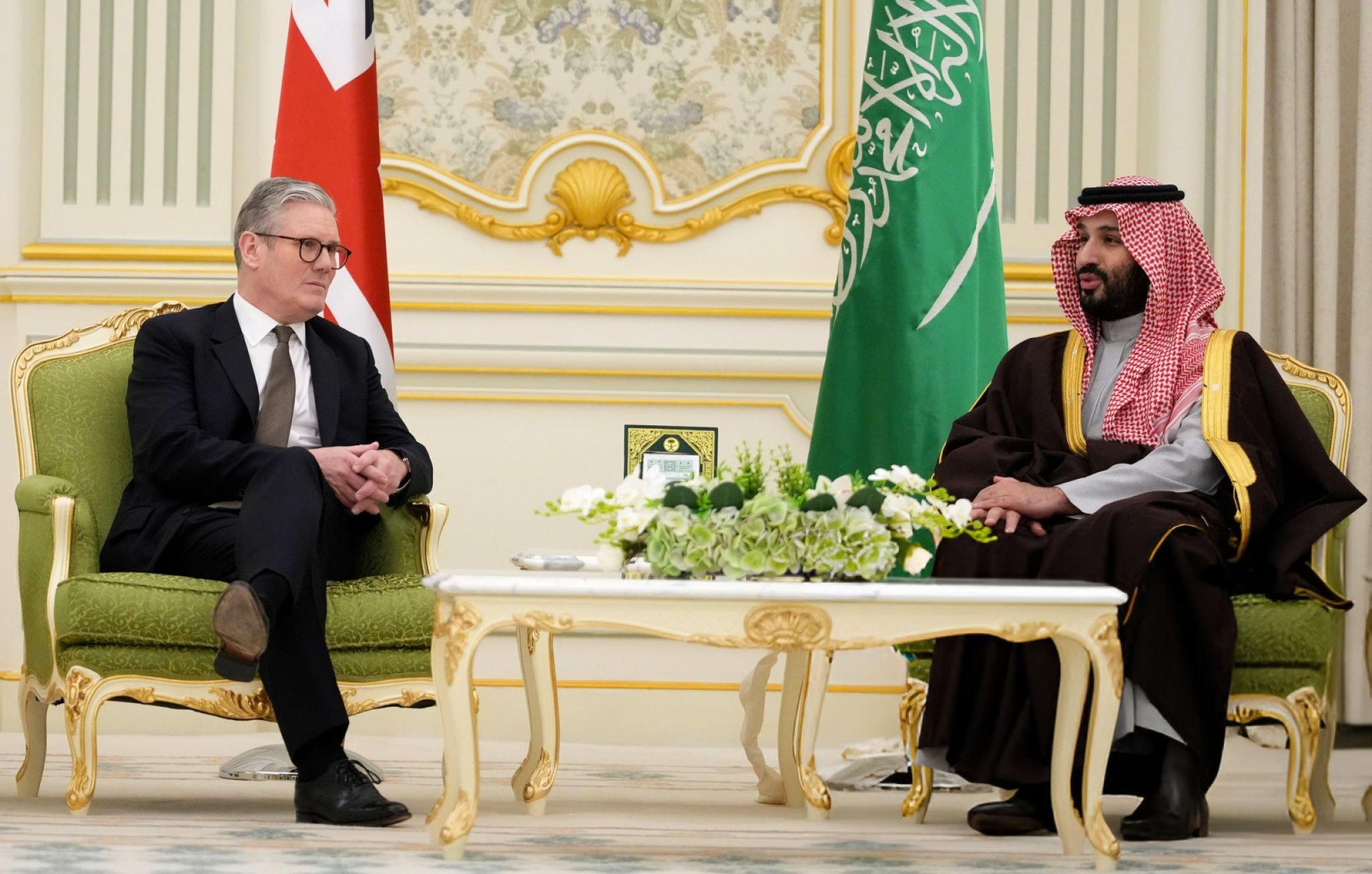Labour leader Sir Keir Starmer has arrived in Riyadh for high-profile discussions with Saudi Arabia’s Crown Prince Mohammed bin Salman, marking a significant diplomatic engagement for the Leader of the Opposition. The visit, which has drawn widespread attention, underscores Starmer’s efforts to bolster his statesmanlike credentials ahead of the next general election.
The meeting comes amid increasing global scrutiny of Saudi Arabia’s human rights record and its geopolitical influence, as well as questions about the UK’s role in fostering ties with the kingdom. Starmer’s trip signals Labour’s intention to engage with key international players while maintaining its commitment to ethical diplomacy.
Key issues on the agenda
Starmer’s discussions with Crown Prince Mohammed are expected to touch on a range of critical issues, including energy security, regional stability, and human rights. With global energy markets still volatile and the UK seeking to transition to renewable sources, Saudi Arabia’s position as one of the world’s largest oil producers ensures it remains a pivotal player in international affairs.
Speaking before his departure, Starmer said:
“The UK’s relationship with Saudi Arabia must be based on mutual respect and shared interests. While we acknowledge their importance as a strategic partner, we must not shy away from discussing the fundamental values of democracy and human rights.”
Energy experts suggest that Starmer will seek to balance the UK’s immediate need for energy cooperation with a long-term strategy for reducing dependence on fossil fuels.
Human rights concerns
The visit is not without its controversies. Human rights groups have long criticised Saudi Arabia for its restrictive policies and treatment of dissidents. The 2018 murder of journalist Jamal Khashoggi, widely believed to have been sanctioned by high-level Saudi officials, remains a particularly sore point in the West’s dealings with the kingdom.
Ahead of the talks, Amnesty International UK called on Starmer to use the meeting as an opportunity to raise concerns about human rights abuses.
“Keir Starmer has a unique chance to advocate for the principles of justice and freedom,” said Sacha Deshmukh, Amnesty’s Chief Executive. “The UK must not allow its economic and strategic interests to come at the expense of these values.”
Starmer has reportedly committed to addressing these concerns during his discussions, while also recognising the need for constructive dialogue.
Regional stability and security
The Middle East’s fragile geopolitical environment is likely to feature prominently in the talks. Saudi Arabia’s role in mediating conflicts and its influence in the Gulf Cooperation Council (GCC) make it a central player in efforts to maintain regional stability.
Starmer is expected to highlight Labour’s position on promoting peaceful resolutions to conflicts, particularly in Yemen, where Saudi-led coalition forces have been involved in a long-running and devastating war.
Middle East analyst Dr Rachel Hammond commented:
“This visit gives Starmer a platform to articulate a balanced foreign policy—one that prioritises diplomacy and conflict resolution while recognising the complexities of modern geopolitics.”
Building international credibility
The visit to Saudi Arabia is being seen by many as part of Starmer’s broader strategy to project himself as a credible alternative to Prime Minister Rishi Sunak. With the next general election looming, Labour is keen to demonstrate that it is ready to govern and capable of handling the intricacies of foreign policy.
Labour insiders believe that Starmer’s ability to navigate the challenging terrain of UK-Saudi relations could enhance his image as a competent and pragmatic leader. However, the trip also carries risks, particularly if it is perceived as overly conciliatory towards a regime with a contentious track record.
Reactions back home
The visit has sparked mixed reactions in the UK. Supporters argue that engaging with Saudi Arabia is a pragmatic necessity, given its economic and strategic importance. Critics, however, have questioned the timing and optics of the meeting, warning that it could alienate progressive voters concerned about human rights.
Political commentator Owen James said:
“This is a delicate balancing act for Starmer. While he must engage with global leaders, he must also ensure that he doesn’t compromise the values Labour voters hold dear.”
Looking ahead
As the talks get underway, all eyes will be on Riyadh to see how Starmer handles this pivotal moment. The outcome of his discussions with Mohammed bin Salman could shape not only the UK’s future relationship with Saudi Arabia but also Starmer’s standing as a global leader-in-waiting.
For now, his visit is a calculated gamble—one that seeks to combine pragmatism with principle in an increasingly interconnected world.







